9 Practical Tips for Preventing Falls in Older Adults
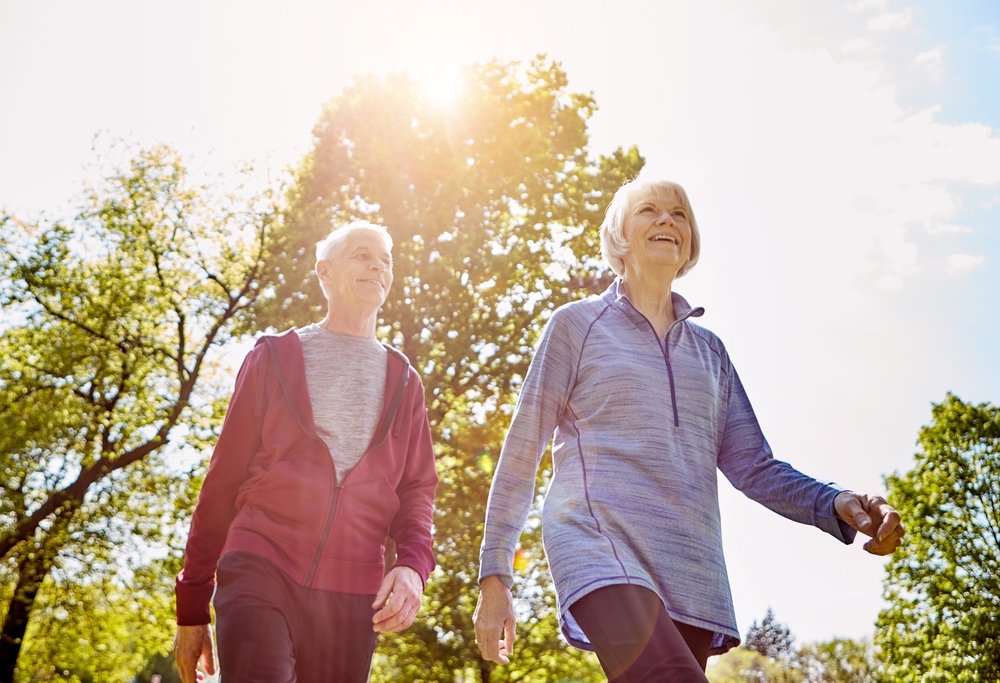
As we age, maintaining balance and preventing falls become increasingly crucial. Falls are a leading cause of injury among older adults, often resulting in serious consequences such as fractures and hospitalizations—but with the right strategies, many can be prevented.
Here, we’ll look at nine practical and effective tips for helping older adults stay steady on their feet. Whether you’re a senior yourself or a caregiver, these insights help you create a safer, more secure environment for independence and healthy aging.
1. Stay Physically Active

Photo Credit: Shutterstock
Exercise works wonders for balance and stability! It also improves muscle strength and keeps joints flexible, which helps keep you balanced and reduces the risk of broken bones if a fall does occur.
Here are a few exercises developed specifically for seniors to improve balance and mobility:
- Balance Exercises for Seniors
- 15 Best Mobility Exercises for Seniors to Stay Active
- 7 Yoga Poses To Relieve Tight Hips
- Strength Training for Women Over 50: 11 Best Moves
- 10 Effective Seated Chair Exercises For Seniors
2. Be Aware of Medication Side Effects

Photo Credit: Shutterstock
When taking any medications, it’s important to pay attention to potential side effects. Some medications can make you feel dizzy or sleepy, which increases your risk of falling.
Always reach out to your doctor if you are concerned about the side effects of any medication you’re taking.
3. Have Your Eyes and Hearing Tested
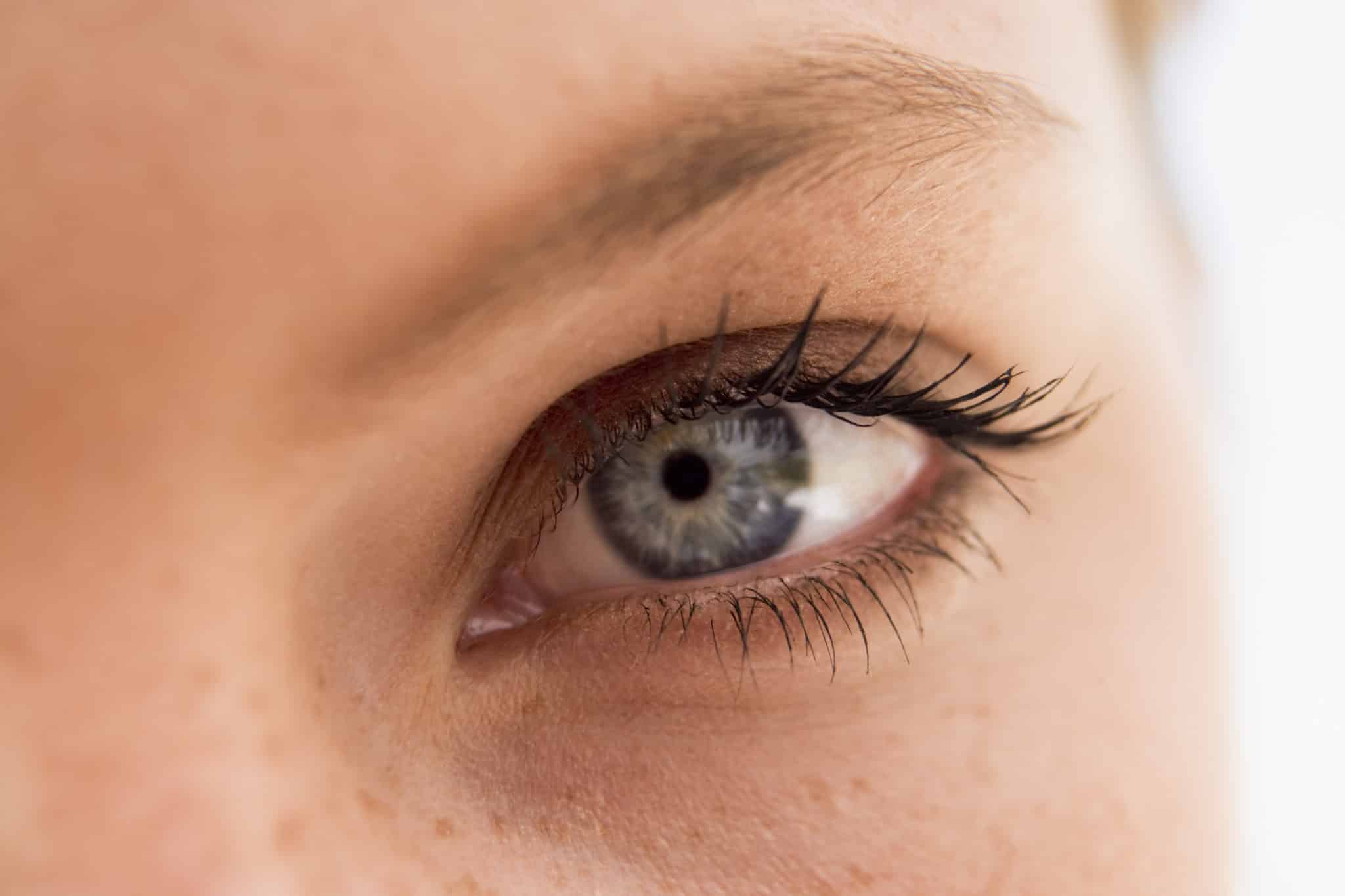
Photo Credit: Shutterstock
Your vision and vestibular system (the balance system of the inner ear) are vital for good balance. Conditions such as cataracts, glaucoma, vertigo, and more can all play a role in how steady you are on your feet. It’s important to keep up with regular checkups for your eyes and ears!
Additionally, if you’re trying out new eyeglasses, contacts, or hearing aids, be sure to take your time getting used to them.
4. Fall-Proof Your Home
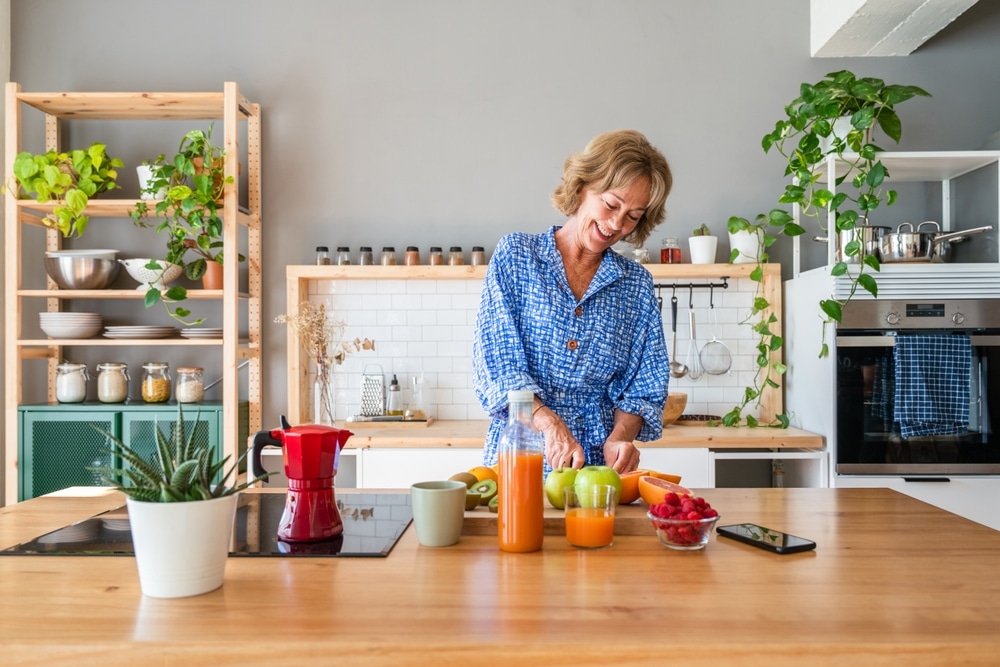
Photo Credit: Shutterstock
There are plenty of steps you can take to help prevent falls in your home (and stay safe if they happen).
The National Institute on Aging provides a room-by-room guide on how to fall-proof your home, which includes tips such as adding railings where necessary, adjusting the lighting, and keeping essential items like pots and pans in easy-to-reach locations.
5. Stand Up Slowly
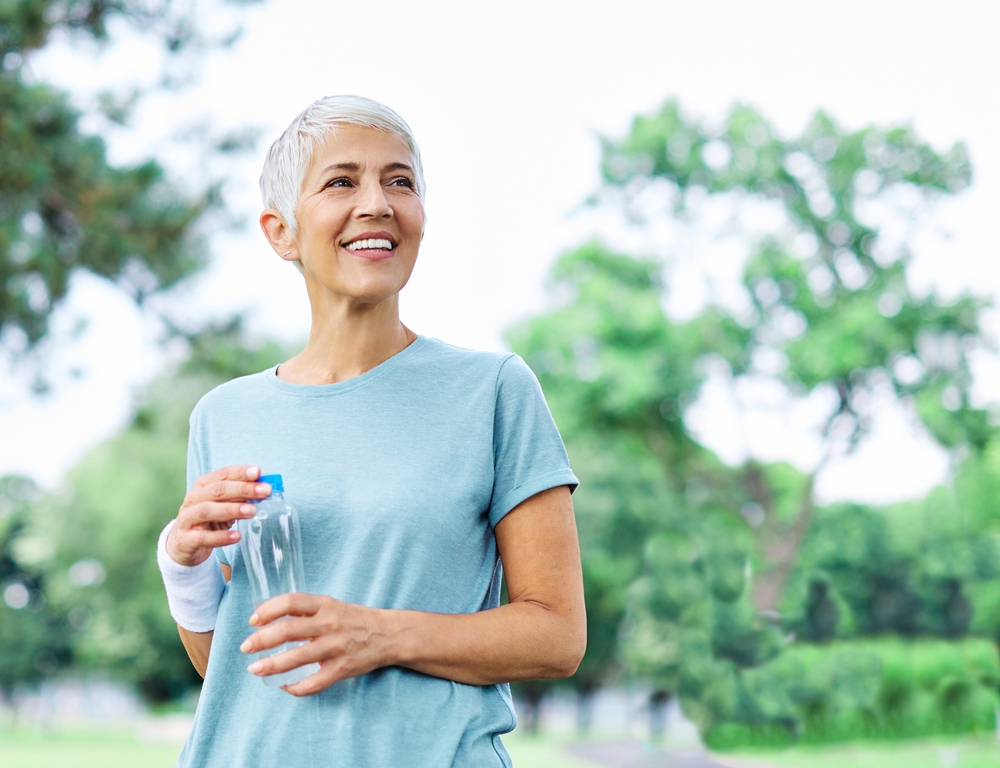
Photo Credit: Shutterstock
Standing up too quickly can cause a sudden drop in blood pressure, called Orthostatic hypotension. This can make you feel faint, lightheaded, or dizzy, increasing your risk of falling.
To avoid this, try your best to stay hydrated and slowly stand up from a sitting or lying position.
6. Get a Good Night’s Sleep
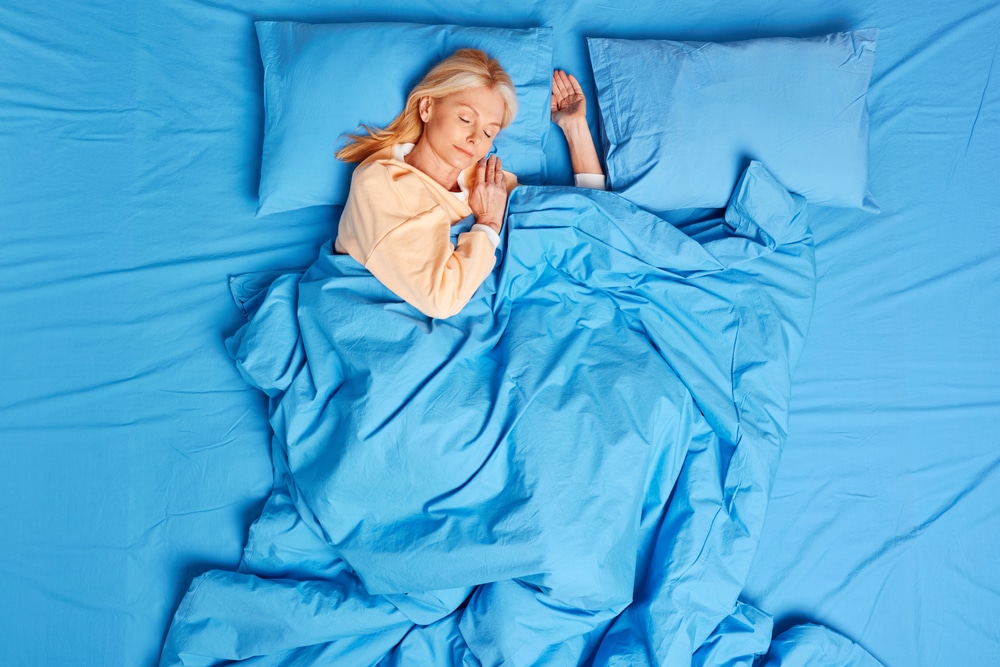
Photo Credit: Shutterstock
It’s no surprise that if you’re extra tired, you’re more likely to fall. Fatigue can lead to brain fog, impaired balance, weaker muscles, and even dizziness or lightheadedness.
Older adults should aim for 7 to 9 hours of sleep per night in order to wake refreshed and alert. If you need a little help, check out these 15 science-backed tips for a better night’s sleep.
7. Wear the Right Shoes
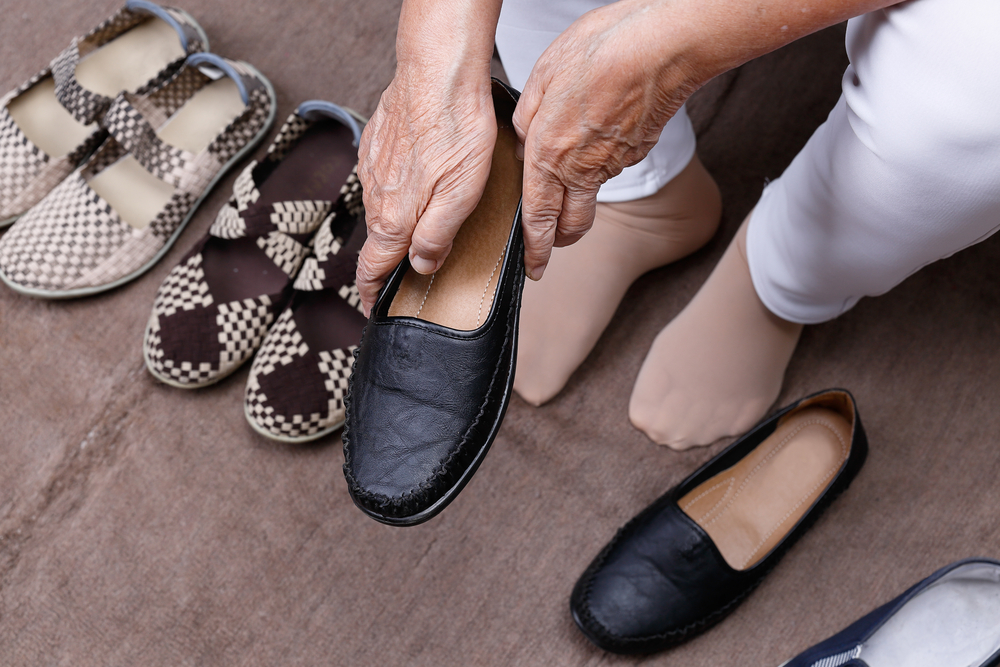
Photo Credit: Shutterstock
To help keep you steady, it’s helpful to wear shoes that are nonskid, rubber-soled, and low-heeled. Try to avoid walking on hardwood floors or downstairs in shoes, tights, or slippers.
8. Use Extra Caution Outdoors
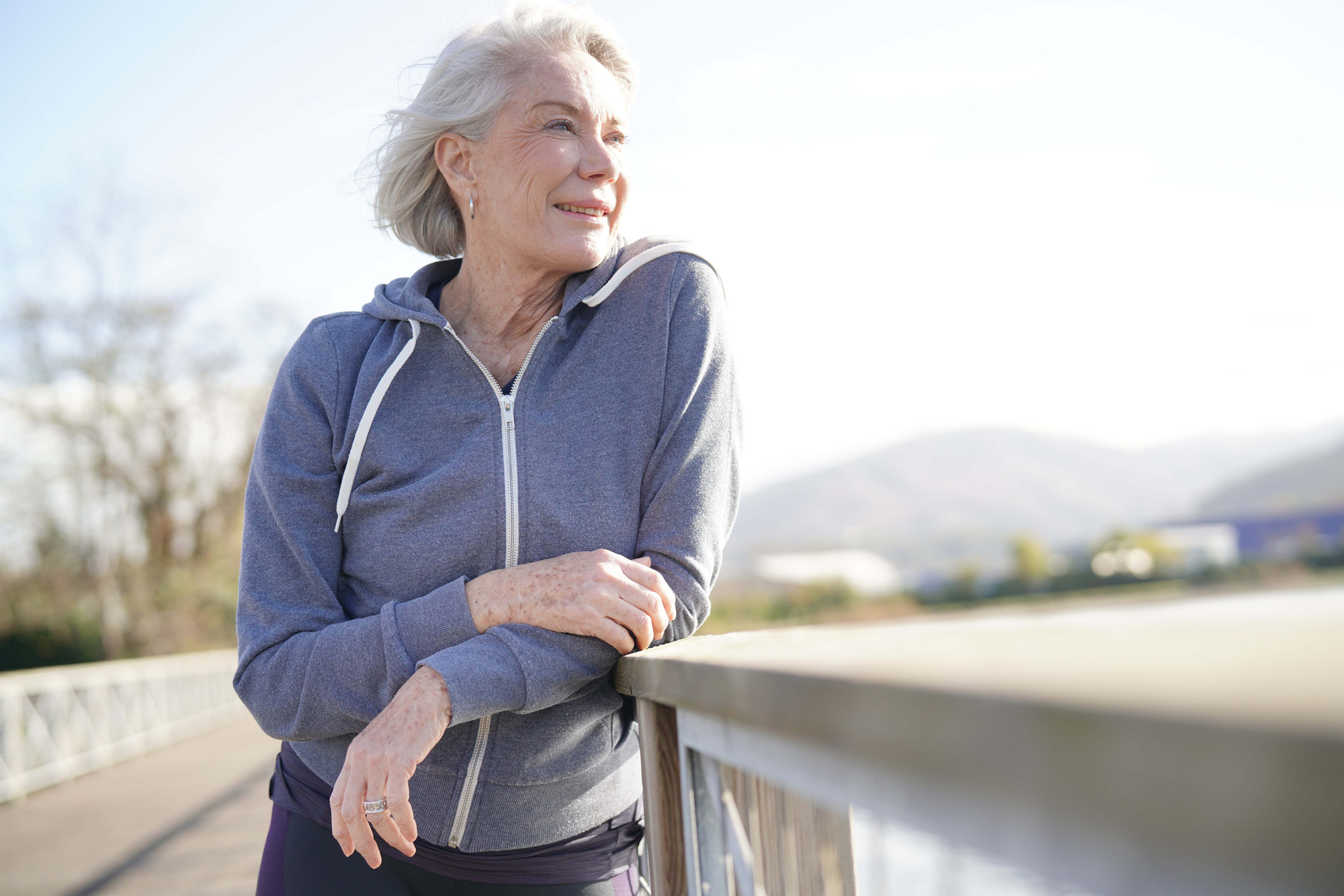
Photo Credit: Depositphotos
Here are a few helpful tips for preventing falls outdoors:
- Keep your hands free: While walking outside, keep your hands free of things such as phones and handbags. Use a shoulder bag, fanny pack, or backpack so that your hands are free to hold onto railings when needed.
- Be extra careful on wet/icy surfaces: If they can’t be avoided, be sure to use extra caution since these surfaces can be extremely slippery. When possible, use ice melt products to clear areas around your doors and walkways.
- Avoid bad weather when possible: If you can, stay indoors if the weather is severe. If possible, opt for meal or grocery delivery services.
9. Use a Cane or Walker if Needed
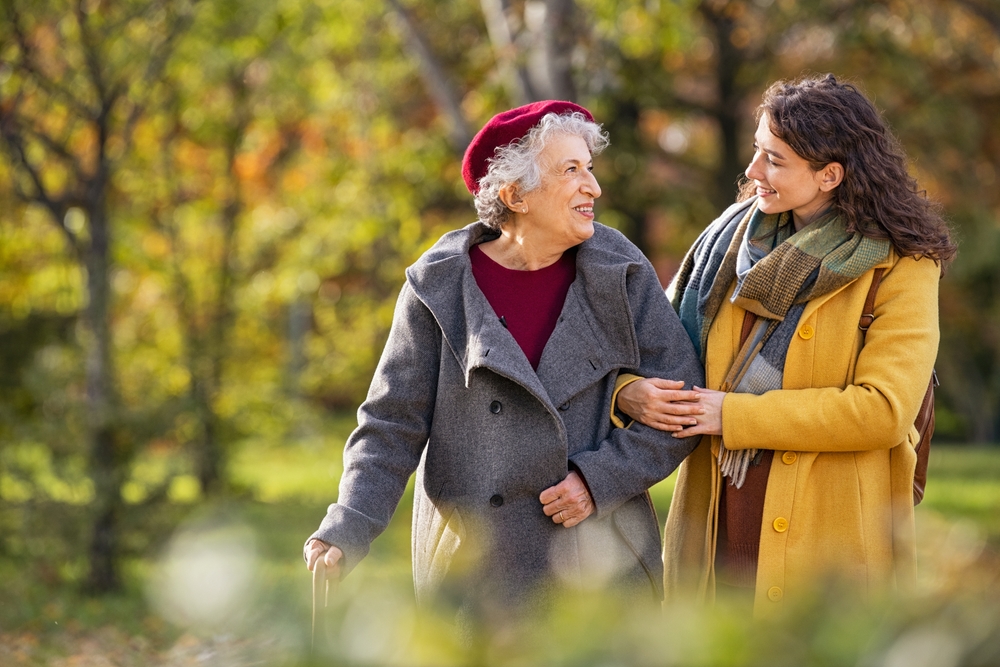
Photo Credit: Shutterstock
Assistive devices like canes and walkers are especially helpful if you find it hard to stay steady on your feet—just make sure it’s the right size for you. A doctor or physical or occupational therapist can help you find and learn how to use the safest option to keep you safe on uneven surfaces.
